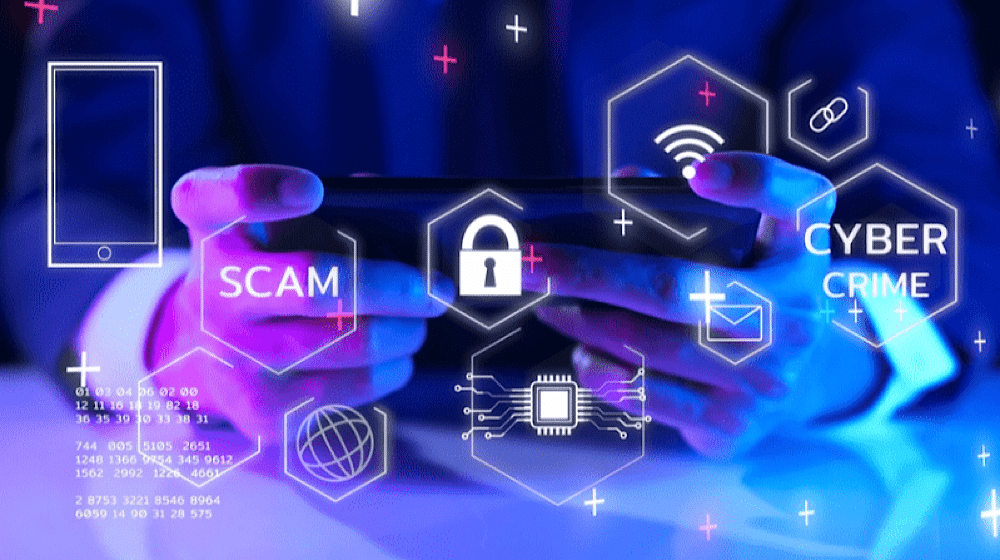contact info
- 3rd Floor, Gujranwala Business Center, Near KFC, G.T. Road, Gujranwala, Pakistan
- +92 303 0813333
- +92 303 0644484
- info@hashlearning.com
- info@hashlearning.com

In a major step towards digital sovereignty and secure communication, the government has successfully completed the testing phase of the Beep App. This application is designed to provide a secure and encrypted communication platform, catering to government officials, institutions, and potentially the general public in the future. With cyber threats on the rise and the need for data protection becoming more crucial than ever, Beep App aims to be a game-changer in ensuring secure and reliable messaging.
The primary motivation behind the development of Beep App is to enhance national cybersecurity. In recent years, concerns over data privacy and security breaches have grown exponentially. Many government officials rely on third-party messaging applications that may not offer adequate protection against cyber espionage and hacking attempts. By introducing a locally developed and government-controlled communication app, authorities can mitigate risks associated with using foreign-owned messaging platforms.
The app is expected to serve as an alternative to widely used apps like WhatsApp, Signal, and Telegram, which, despite their security measures, are still vulnerable to potential data leaks and foreign surveillance.
The Beep App boasts a variety of features that align with modern secure communication standards. Some of the key highlights include:
Beep App ensures that all messages, voice calls, and media files are end-to-end encrypted. This means that only the sender and receiver can access the communication content, significantly reducing the risk of unauthorized interception.
Unlike conventional messaging apps, Beep App integrates secure cloud storage solutions to store critical communication data. However, these storage facilities will be locally hosted, further ensuring data privacy.
The app is designed to work seamlessly on both mobile and desktop devices, allowing users to switch between devices without compromising security.
Unlike foreign applications, Beep App operates on government-controlled servers, reducing dependency on external infrastructure that may be prone to cyber threats and external interventions.
One of the standout features of the Beep App is its AI-powered monitoring system that detects potential security threats, phishing attempts, and unauthorized access in real time.
Different government departments may require varying levels of security and features. The Beep App allows customization to cater to the specific needs of different agencies, ensuring a tailored and efficient communication experience.
The testing phase of the Beep App was carried out across multiple government departments to evaluate its efficiency, security, and reliability. During this phase, various challenges were encountered and addressed:

While the Beep App is currently designed for government officials and institutions, there is speculation that it may eventually be extended to the general public. A secure, government-backed messaging platform could provide citizens with a safer alternative to existing apps, particularly for individuals who prioritize privacy.
Furthermore, the introduction of this app sets a precedent for local technology development, encouraging innovation in the cybersecurity sector and reducing reliance on foreign tech companies for communication infrastructure.
In addition to government agencies, there is also potential for collaboration with private businesses and critical industries that require high-security communication channels. Sensitive sectors like banking, law enforcement, and healthcare could greatly benefit from an encrypted messaging platform that prioritizes national security.
While the Beep App is being hailed as a positive step towards digital security, there are also concerns regarding transparency, government oversight, and data access. Critics argue that a government-controlled messaging app could lead to increased surveillance, potentially infringing on user privacy.
To address these concerns, the government must implement clear policies on data access, ensuring that user information remains confidential and is not misused for unwarranted monitoring. Transparency in encryption standards, security audits, and compliance with data protection laws will be crucial in gaining public trust.
Additionally, there will be challenges in adoption, as users are already comfortable with existing messaging platforms. For the Beep App to be widely accepted, it must offer not just security but also user-friendly features that compete with leading apps in the market.
The successful completion of the Beep App’s testing phase marks a significant milestone in national cybersecurity and secure communication. By providing a government-controlled, encrypted messaging platform, authorities can ensure confidential and seamless communication among officials while reducing dependence on external platforms. With the increasing importance of data privacy, the Beep App represents a bold step towards digital independence and a safer communication ecosystem.
As the final version of the app nears its official launch, it remains to be seen whether the government will open it to the public or keep it strictly for internal use. Regardless of its future scope, the Beep App is undoubtedly a pioneering initiative in securing national digital communication.
The coming months will be crucial in determining the app’s impact, especially if it expands beyond governmental use. If executed properly, Beep App could become a symbol of national technological advancement, setting a precedent for other nations to follow in the quest for secure digital communication.
You must be logged in to post a comment.